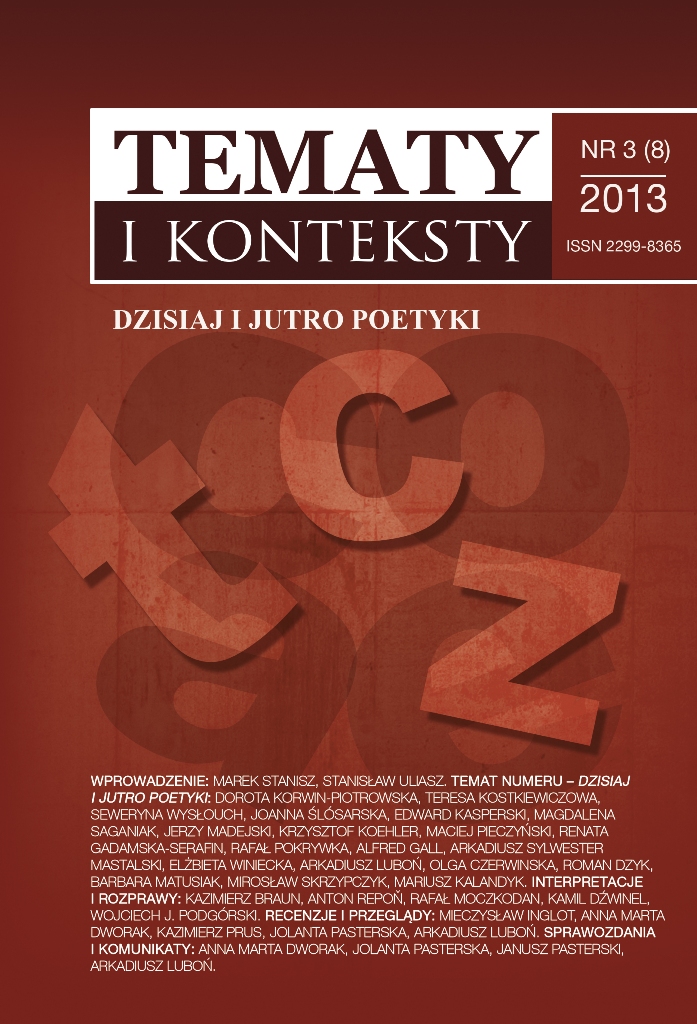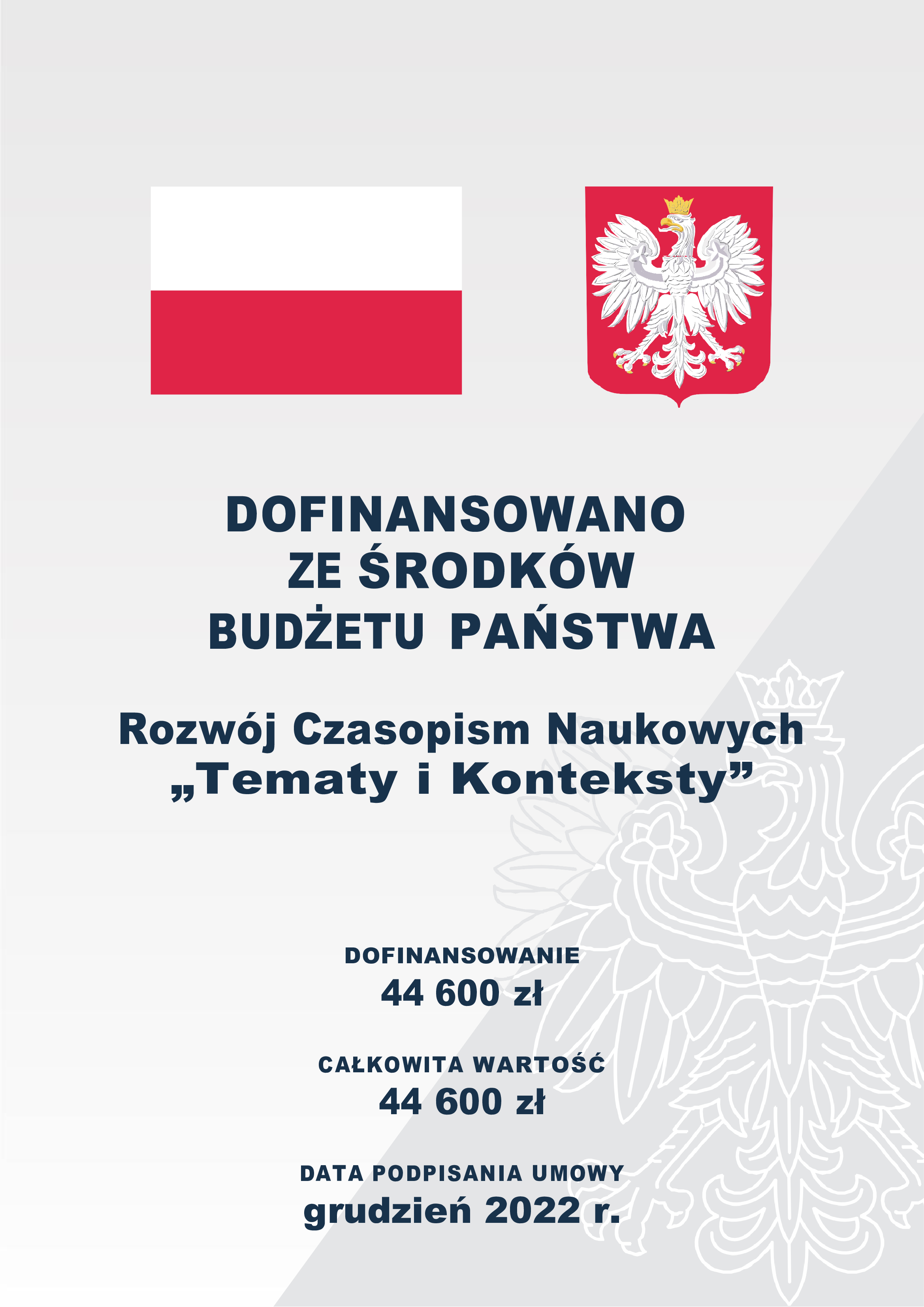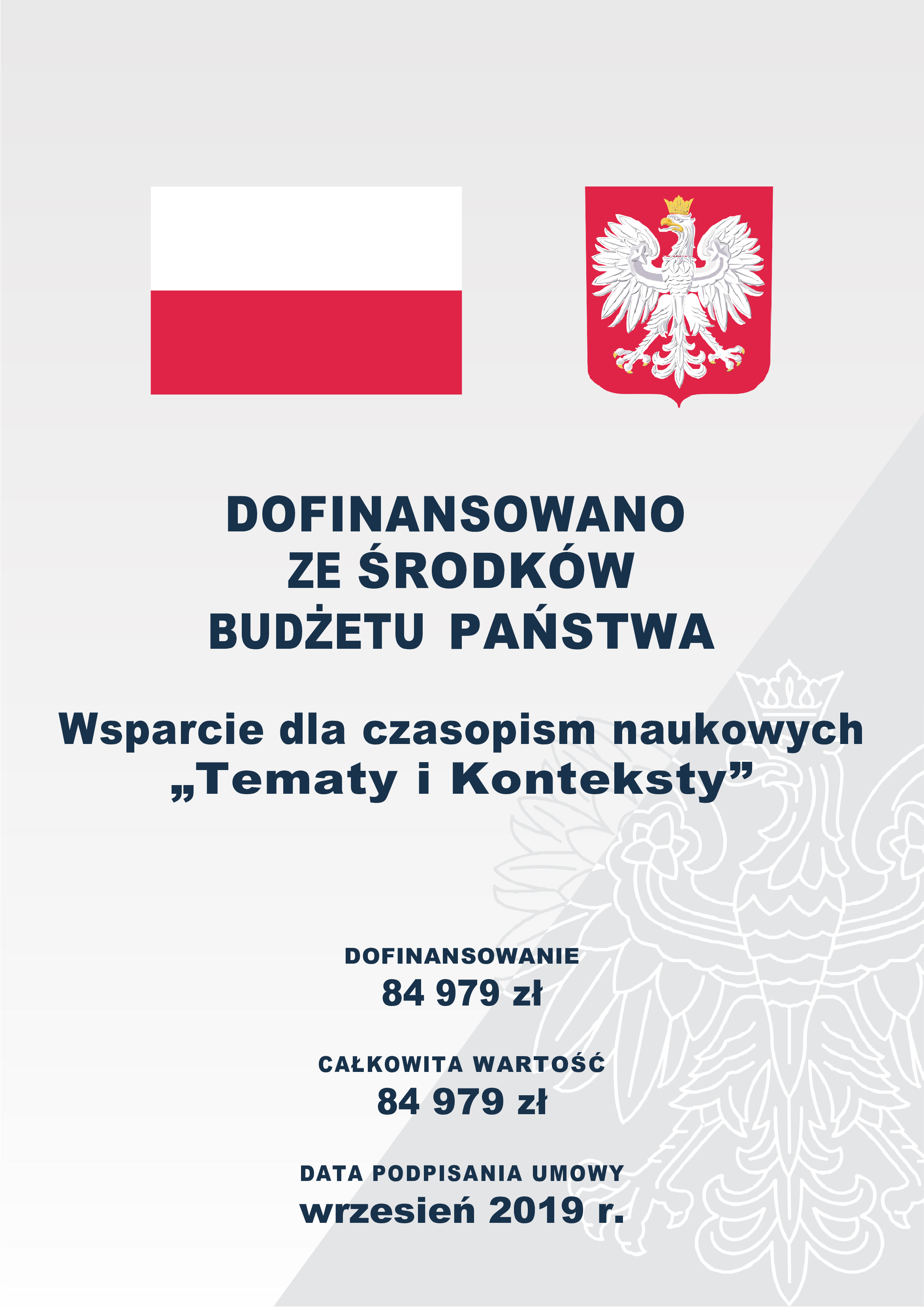The Ideal of Family Happiness in "Family Happiness" by Lev N. Tolstoy
Keywords:
Tołstoj Lew Nikołajewicz, Family Happiness, marriageAbstract
"Family Happiness" by Lev Tolstoy is an honest confession of a woman who, despite being beautiful and married, having children, a comfortable apartment, etc., feels the lack of something in her life. Tolstoy undertakes a profound analysis of the factors determining the relations between women and men, as well as the reasons for suppressing the love between them. He seeks for the reasons, the wrongdoers and the ways of rescuing marriages. In his work, Tolstoy in a literary form outlines a classification of marital relations and answers almost all the questions which have bothered mankind. In his view, the recipe for family happiness is simple: "We all – but, first of all, you women – have to personally experience the meaningless of life in order to return to its basis", and then: "a new sense of love for the children and the father of your children lays the foundations for another, totally different, happy life". Generally, the novel "Family Happiness" constitutes the end of Tolstoy’s ideological and artistic search period, when he tried to escape from a social muddle and find a rescue in art, nature and the management of his property. Apart from the intriguing plot, the novel provides an outline of the psychological and moral aspects of married life. Many readers will be interested in them, some will be outraged and unable to come to terms with the author, but, definitely, no one will remain indifferen
Downloads
Downloads
Published
How to Cite
Issue
Section
License
Copyright (c) 2013 Tematy i Konteksty

This work is licensed under a Creative Commons Attribution-NonCommercial-NoDerivatives 4.0 International License.




